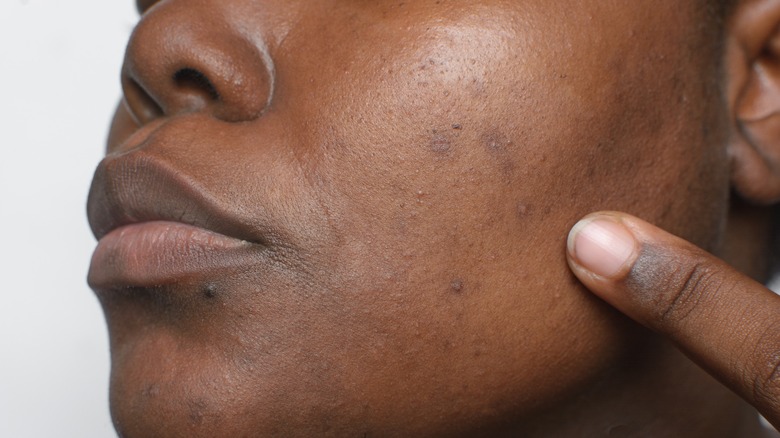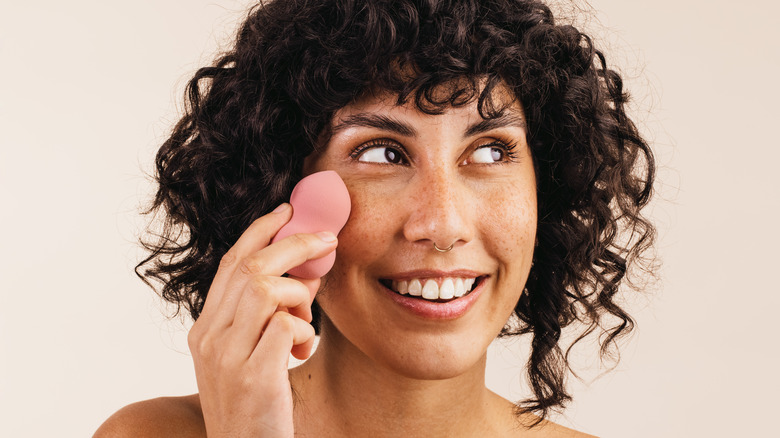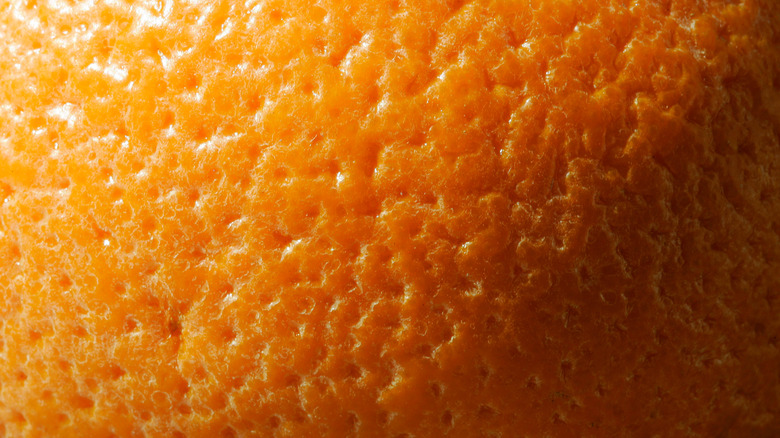One Beauty Tool Ensures Flawless Foundation Application When You Have Textured Skin
The secret to applying foundation seamlessly always revolves around the ability to blend well. After all, the whole point of wearing foundation is to present a flawless version of your skin that is super smooth.
Yet the goal is also to create a natural look in which the finished product is one that closely resembles your skin tone. For this reason, it is important to start by finding the right shade of foundation for your skin. The worst thing you can do is have a stark line of demarcation around your jawline or wear a shade so far away from your natural skin color that it stands out sharply in contrast.
In order to avoid the telltale line, many people just dab a few problematic spots using their fingers. Yet not only is that ineffective, but it does virtually nothing if you have textured or bumpy skin. To get uneven skin looking smooth, a makeup sponge is a must.
Why a sponge is vital for textured skin
"A sponge is ideal for a flawless natural foundation application," says makeup expert Samantha Freda, as per Byrdie. "If I had to choose my favorite makeup application method, it would be using a sponge for everything," Freda explains. "The coverage is buildable, the result is practically flawless, and the makeup will last you all day."
To ensure the smoothest application possible, Freda advises wetting the brush just a little before applying the foundation and then pressing down on it with your fingers to remove excess drops.
Once applied, it's time to blend out. "Find a spot towards the center of your face and blend out towards the hairline so you match the sides of your cheeks and down the middle of your neck," says celebrity makeup artist Daniel Martin, via InStyle. "If your neck is lighter than your face and you don't want your face to be as pale, choose one shade lighter than your face so it's comparable."
Help for textured skin
A makeup sponge is beneficial for everyone when applying foundation, because the truth is that everyone has some unevenness in their skin. It's normal to have flaky skin, wrinkles, or clogged or large pores from time to time. However, certain skin conditions can cause more textured than usual, including acne or acne scars, eczema, rosacea, and sun damage.
In addition, as we age, our skin loses collagen, and that can cause a condition known as orange peel skin, where pores grow big and look similar to an orange. "It's a sign of sun damage and aging," board-certified dermatologist Dr. Morgan Rabach tells Mbg Lifestyle. "Basically, as collagen and elastin are compromised, the pores are not held closed, leaving them larger and more visible."
To reduce the appearance of uneven skin texture caused by common skin conditions, anti-inflammatory topical solutions are often prescribed for conditions like rosacea and eczema. Retinols can also help smooth skin. For acne scars, in-office dermatological procedures such as laser treatment, micro-needling, and chemical peels can smooth out textured skin as well.


